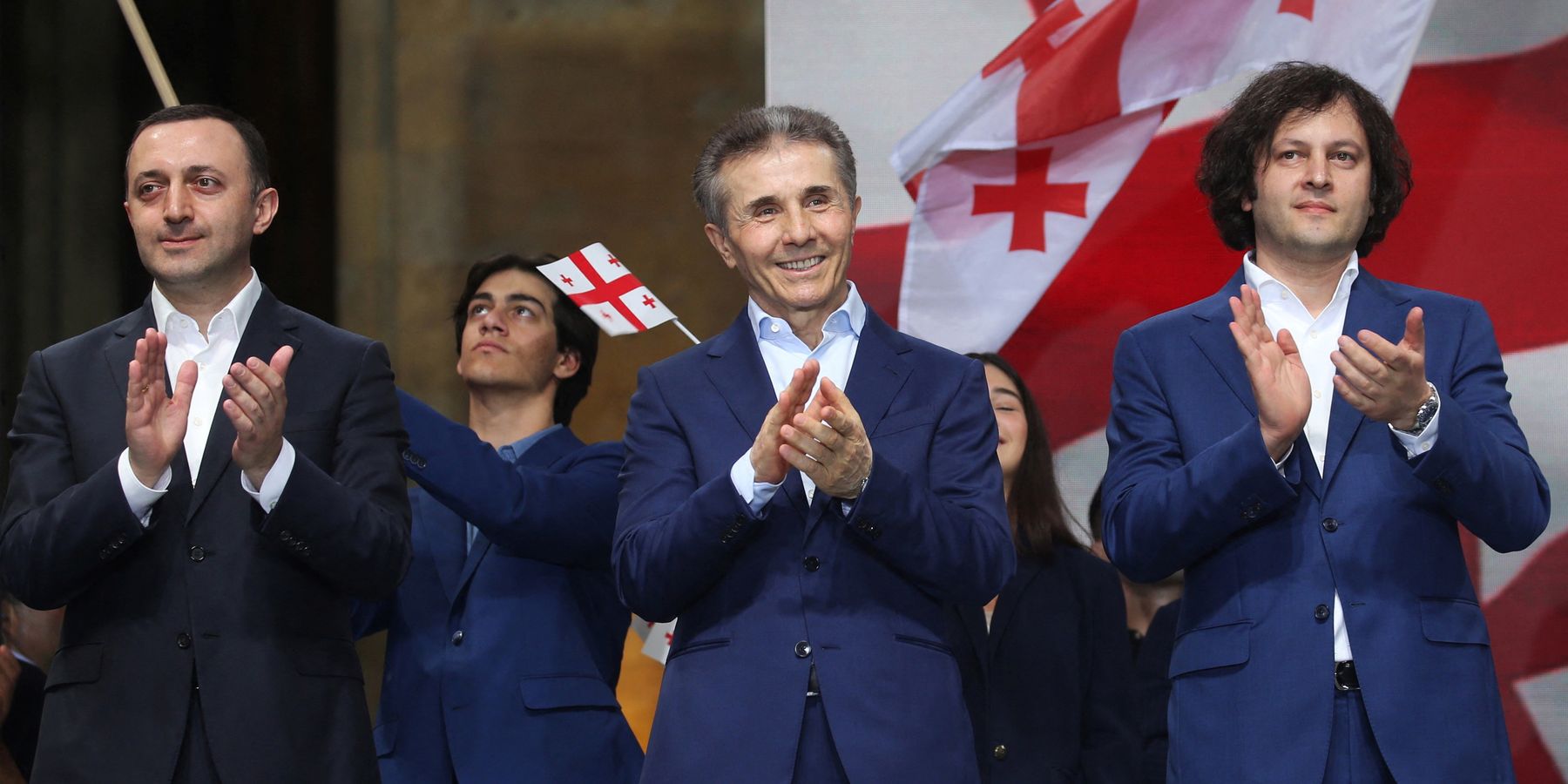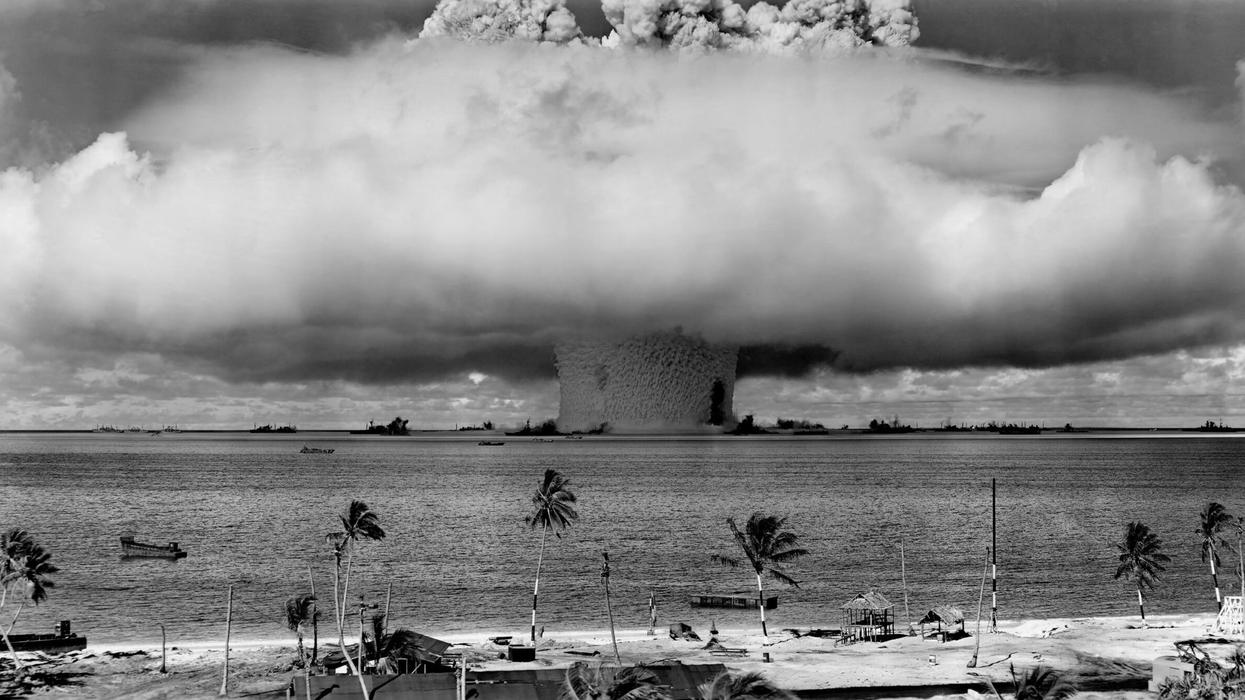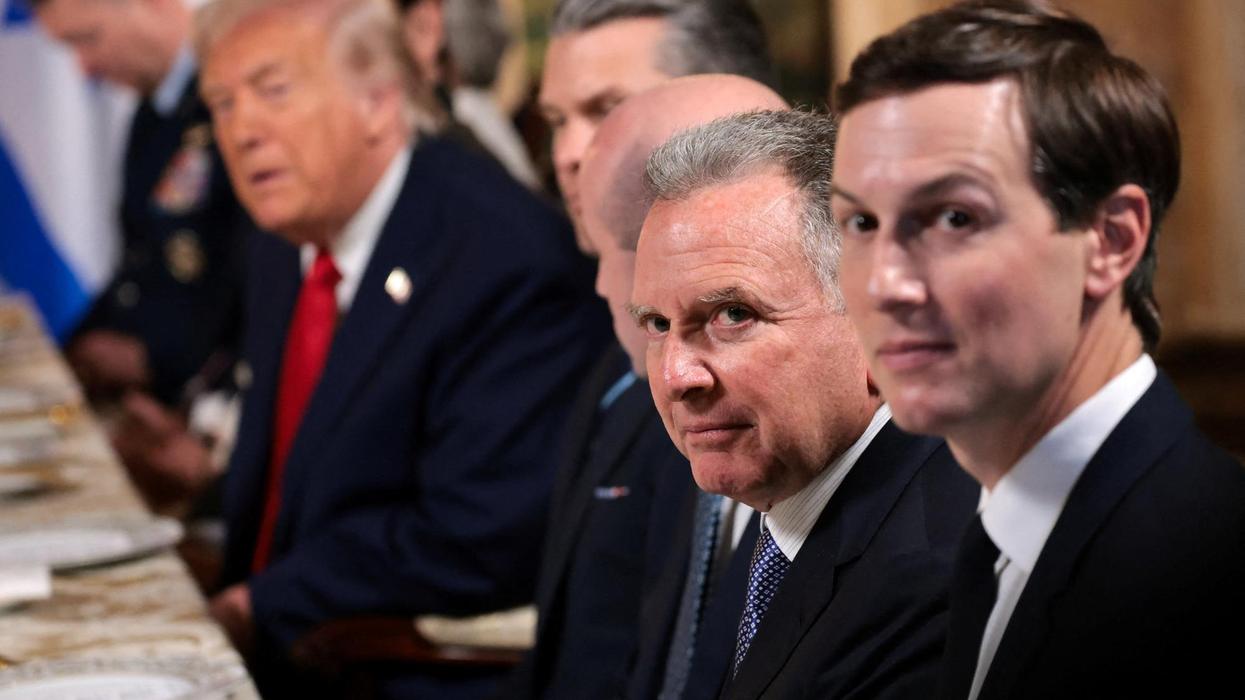Georgia’s parliamentary election on October 26 is set to be the country’s most consequential in its over 30 years of independence.
With polarizing political rhetoric and foreign interest in the election’s outcome at a peak, nuanced discussion or analysis on the background and implications of the upcoming vote have, unfortunately, been mostly eschewed from the Western media.
Georgia, remembered fondly as a “beacon of liberty” by President George W. Bush during his 2005 trip to the capital, Tbilisi, has indeed long been one of the most successful former Soviet states (excluding the three Baltic republics) in terms of its ability to implement Westernizing reforms and, therefore, enhance its ties with the European Union and NATO.
However, Georgia is maybe less remembered as the state that, just a few years subsequent Bush’s trip, was labeled as responsible for reigniting a war with its separatist territory in August 2008 that saw the Russian Army quickly become involved and swarm deep into Georgian territory before that bout of fighting was ended through European mediation. Nevertheless, Russian armed forces remain in the separatist territories of South Ossetia and Abkhazia — whose independence Moscow recognized following the 2008 war — and where they have since pursued a policy of “borderization.”
Today, Georgia itself is reportedly viewed as one election away from the shadow of “Russian-style authoritarianism” and isolation from its Western partners. That election, a parliamentary vote on October 26, has over the last year become the focal point of all Georgian politics and external attention on the country.
However, as my co-authors and I lay out in a new report for the Quincy Institute for Responsible Statecraft, “A more nuanced perspective is justified based on the complexity of internal Georgian politics and the reality of Georgia’s geopolitical situation.”
It takes two to tango
The election is preceded by the passing of a law this spring that seeks to limit foreign influence in Georgian politics through the imposition of strenuous reporting measures and public registration for media, civil society, non-governmental, and other such organizations which receive 20% or more of their funding from external sources. (Over 90% of funding for Georgian civil society organizations comes from international donors or development agencies.)
Large-scale protests erupted in Tbilisi both in 2023 (when a similar bill was first introduced but subsequently withdrawn) and this spring when the ruling party reintroduced and ultimately passed a slightly modified version of the legislation.
There has since been increased pressure from Brussels and Washington in the form of freezing aid, Georgia’s EU accession process (the country received candidate status last December) and high-level contacts, and the advancing imposition of sanctions against members and allies of the ruling Georgian Dream party for “undermining fundamental freedoms” and “anti-democratic actions.”
The U.S has also reportedly prepared sanctions against the founder and financier of the GD, Bidzina Ivanishvili, who is widely believed to be the party’s key decision maker.
The diffuse, pro-Western opposition parties and blocs in Georgia express concerns that center around the country’s now-uncertain Euro-Atlantic future, its further embrace of authoritarian practices, and its “appeasement” of Russian interests in Georgia. As the election nears, these have been turned into political tools as many oppositionists and likeminded partisan NGOs and media outlets have framed the upcoming vote as a binary pro-European or pro-Russian choice.
This rhetoric has, unsurprisingly given the ongoing conflict in Ukraine, caught the attention of Western commentators, analysts, and members of government who repeat these refrains with limited skepticism or further investigation of their own. It is arguably true that over the last few years the increasingly antagonistic policies and statements of the GD have ultimately, even if inadvertently, contributed to a deterioration of Tbilisi’s ties with Brussels and Washington. However, it is equally true that it takes two to tango and that Western actors are not irreproachable.
On the whole, the resonance of such a black-or-white geopolitical framing among voters in Georgia, where the majority of the population has long stressed poverty and economic concerns as the main contributors to a sense of insecurity, is questionable.
Stuck in the ‘hedging middle’
The GD came into power in 2012 with the goal of pursuing pragmatic relations with Russia following the previous government’s severing of relations with Moscow after increasing tensions boiled into open conflict. The ruling party has maintained this objective even following Russia’s February 2022 invasion of Ukraine.
While Georgia has condemned Russia’s actions in Ukraine at international fora and has provided humanitarian aid to Kyiv, Tbilisi has also reopened direct flights with Russia, refused to adopt European sanctions (though generally restricting sanctions-busting trade) or supply arms to Ukraine, and increased its bilateral trade turnover. While some have been understanding of Georgia’s uniquely challenging position amid the war in Ukraine, others have been less forgiving and more circumspect of the underlying motivations of the ruling party’s actions.
Therefore, it may be more accurate, and certainly less politically motivated, to instead view the policies of the GD as an attempt to position the country as a “hedging middle” node in a still nascent but developing Eurasian connectivity network. While Georgia’s room for maneuver is certainly not on par with Turkey or Kazakhstan, Tbilisi does have an interest in pragmatic relations with all of its neighbors and global centers of power, especially amidst proliferating regional conflicts.
The position that Ivanishvili and GD governments have taken may further be explained by three interconnected observations: (1) in order to restore Georgia’s territorial integrity, be secure, and achieve real prosperity it is ultimately essential for Georgia to resolve its disputes with the separatist territories; (2) that the use of military means to achieve this goal will neither be successful nor have the support and backing of the Europeans and Americans; and (3) it is therefore essential to pursue a diplomatic and political track that ultimately requires improved relations with the separatist populations themselves as well as Russia.
While many Georgians have come to realize that a military solution to their country’s division is likely impossible, it is nevertheless challenging to hear a Georgian leader (especially one pejoratively characterized as a “Russian”) speak about the need for apologizing to and reconciliation with those living in Abkhazia and South Ossetia, whom Georgians have fought several wars against which have included ethnic cleansing and war crimes on all sides. (This challenge is especially true for a younger generation that has been almost entirely cut off from contact with the “other” besides their own community’s often hostile rhetoric).
This view, however, comes into direct conflict with an effervescent zeitgeist in Georgian politics: that Russia has been, is, and will continue to be an enemy and occupier of Georgia. Successfully challenging, or even ameliorating, these convictions, held also by GD supporters, is a daunting political task.
The October 26 election presents an opportunity for the Georgian population to either re-endorse or reject the GD government and, by extension, Ivanishvili himself. Its free and fair nature will be closely scrutinized and it's likely to be a hotly contested election, no matter the actual results.
Nevertheless, as Americans and Europeans loudly stress, our elections and their outcomes (regardless of their contestation by the losing side) are our elections, and ours alone. The same principle ought to apply to Georgia’s upcoming parliamentary election. What we can, and should, do to influence domestic developments in other countries is to work on once again embodying those values and beliefs that we hope others will seek to emulate.
If that initial strategy falls short of achieving our desired outcomes, then our next step ought to be adjusting our existing policies to fit the realities that develop beyond our borders without unnecessarily alienating those whom we seek to influence.
- Can the US be accused of 'meddling' in Georgia's election? ›
- Georgia bill passes: Why the West needs to stay out of the protests ›
- Stop treating Georgia as a creature of the US and the West ›
- Georgia: Election was just as much about the economy | Responsible Statecraft ›
- Protests lead to another president out the door in South Caucasus | Responsible Statecraft ›
- Streets on fire: Is Georgia opposition forming up a coup? | Responsible Statecraft ›
- Georgia’s choice: The past or the future — not Russia or the West | Responsible Statecraft ›
















